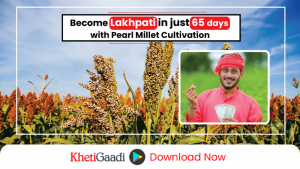In a groundbreaking achievement, Punjab Agricultural University (PAU) in Ludhiana has become the first research institute globally to successfully utilize the wild cotton species Gossypium armourianum to develop resistance against Cotton Leaf Curl Disease (CLCuD) in American cotton. This significant development was announced by Dr. Satbir Singh Gosal, Vice-Chancellor of PAU, who emphasized that cultivating CLCuD-resistant American cotton varieties in North India could ensure high and stable cotton production, potentially mirroring the transformative impact of transgenic Bt-cotton.
KhetiGaadi always provides right tractor information
Asia Connection
Dr. Gosal highlighted that CLCuD is the most severe disease affecting American cotton in the North Indian states of Punjab, Haryana, and Rajasthan, as well as in Pakistan and China. Quoting figures from the International Cotton Advisory Committee (ICAC), Dr. Ajmer Singh Dhatt, Director of Research, disclosed that India, Pakistan, and China together produce nearly half (49%) of the world’s cotton. Of the estimated 24.19 million global cotton farmers, approximately 85% (20.44 million) reside in these three Asian nations. Therefore, managing CLCuD is crucial for the sustainability of cotton production both in Asia and worldwide.
If you wish to know organic methods to increase your overall cultivation yield, please call KhetiGaadi counsellor on 07875114466 or write an email to connect@khetigaadi.com
Understanding Cotton Leaf Curl Disease
Dr. Pankaj Rathore, Principal Cotton Breeder and former Director of PAU’s Regional Research Station in Faridkot, explained that the symptoms of CLCuD begin with the thickening of small veins on young leaves, leading to a continuous network of small veins. Other symptoms include the upward or downward curling of leaves, and in severe cases, the formation of cup-shaped outgrowths on the lower surface of leaves, resulting in stunted plants with fewer bolls. He stressed that developing CLCuD-tolerant cotton varieties is the only viable option for managing this disease. Although several tolerant varieties have been developed in the past, new viral strains have rendered all existing varieties susceptible, including transgenic Bt-cotton hybrids.
Breakthrough in Cotton Breeding
Dr. Dharminder Pathak, Principal Cotton Breeder at PAU Ludhiana, elaborated on the breakdown of resistance, a common issue in crop breeding. He noted that related species and wild relatives of crop plants are rich sources of economically important genes. Consequently, PAU initiated a wide-hybridization program nearly 20 years ago to incorporate genes governing CLCuD resistance from wild cotton species into American cotton. This challenging process, hindered by numerous pre- and post-fertilization barriers, has now borne fruit. PAU has developed elite American cotton breeding lines carrying resistance to CLCuD, with the resistance genes transferred from the wild cotton species Gossypium armourianum.
Global Implications and Future Prospects
This pioneering achievement by PAU marks a significant milestone in global cotton research and promises to enhance cotton production stability in North India. The development of CLCuD-resistant varieties not only holds the potential to boost cotton yields in the affected regions but also sets a precedent for other research institutions worldwide to follow. PAU’s success in breeding CLCuD-resistant cotton underscores the importance of innovative research and collaboration in addressing agricultural challenges. As these new varieties become available to farmers, they hold the promise of revitalizing cotton production and ensuring a stable supply of high-quality cotton for the textile industry.
Stay tuned with us on our WhatsApp channel for more real time updates on various agriculture related schemes and innovative cultivation methods aimed at supporting our hardworking farmers.
For more detailed information, visit https://khetigaadi.com/ regularly!
To know more about tractor price contact to our executive






